Taiwan Strait situation might worsen after 2024 Taiwanese presidential election
Lianhe Zaobao associate editor Han Yong Hong notes that the so-called Blue-White alliance seems to have broken down, and the DPP has a good chance of winning. With DPP leader William Lai a self-proclaimed advocate for Taiwan independence, that would likely mean strained relations with Beijing, or even armed reunification.
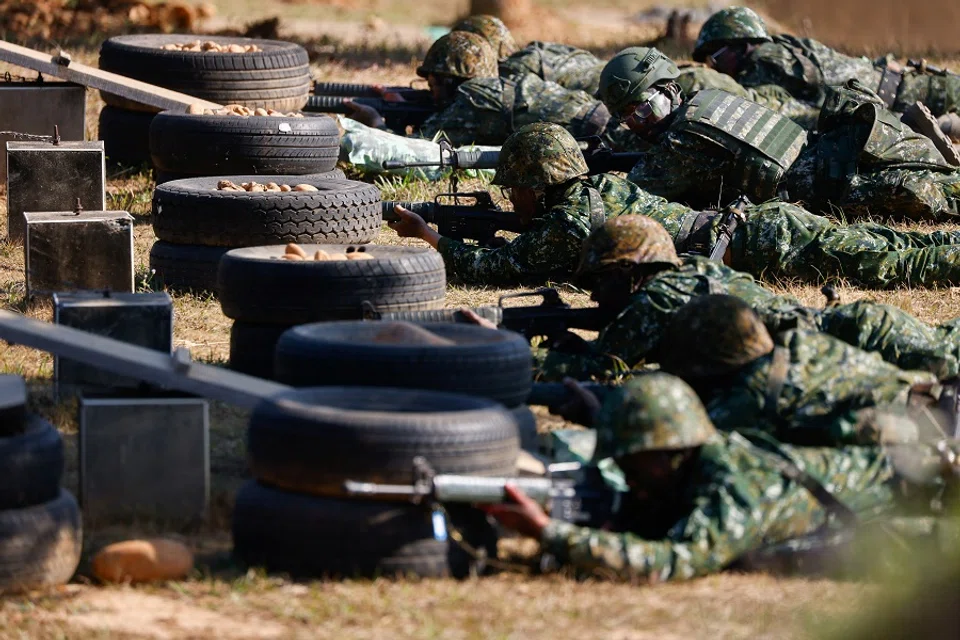
On 23 November, it was reported that the Kuomintang (KMT)'s presidential candidate Hou You-yi, Taiwan People's Party (TPP) candidate Ko Wen-je, and Foxconn founder Terry Gou, one of the richest men in Taiwan, met at the Grand Hyatt Taipei for the "Blue-White alliance" collaboration talks.
However, the "show" ended with the three sides exchanging fire and parting on bad terms. In front of live cameras from Taiwanese media, Gou and Ko asked for a private discussion among the three sides, while the KMT insisted on an open discussion in the presence of the media. Along with former Taiwan President Ma Ying-jeou and KMT chairman Eric Chu, the five sat stiffly in a row, with Gou mostly engaging in awkward talk, and even excusing himself for a bathroom break when he could not handle the situation.
The Blue and White camps showed no sincerity to cooperate, only to set each other up and tear each other apart in public. The collaboration talks turned into a massive breakup, leaving supporters and international media either appalled or fed up.
With less than 24 hours to go before the registration for presidential candidates ends on 24 November, the Blue-White alliance appears to have split up, implying that William Lai and Hsiao Bi-khim of the Democratic Progressive Party (DPP) have a good chance of winning, even if it is not as easy as winning without a fight.
... mainland China would not sit idly by if [William] Lai, a self-proclaimed "pragmatic worker for Taiwan independence", were to govern Taiwan. - Chao Chun-shan, cross-strait relations expert
Possible consequences of DPP victory
Assessing the Taiwan Strait situation in 2024 under such circumstances, Chao Chun-shan, a renowned cross-strait analyst in Taiwan, said on a political affairs programme this week that if Lai were to be elected, Taiwan-US relations would improve but cross-strait relations would definitely worsen - mainland China would not sit idly by if Lai, a self-proclaimed "pragmatic worker for Taiwan independence", were to govern Taiwan.
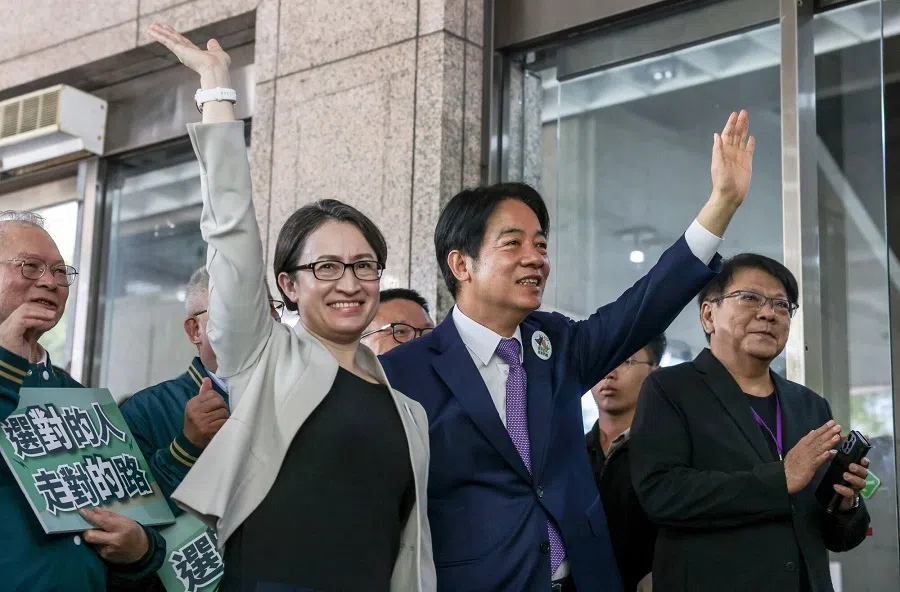
Indeed, last week, the mainland's Taiwan Affairs Office (TAO) harshly accused Lai of being an "instigator of war" and a "rascal", asserting that the Lai-Hsiao pairing would be a "doubling up of Taiwanese independence advocates".
Maintaining his style as a "pragmatic worker for Taiwan independence", Lai frankly told the US's Time magazine that he does not endorse the "fiction of reunification". Last week, he even offered two major conclusions of the China-US summit: one, the US is determined to maintain peace in Taiwan; and two, making use of American reports to assert that Chinese President Xi Jinping has rejected claims that Beijing was planning for military action against Taiwan in 2027, thereby criticising that the KMT had been threatening the people in the past.
These remarks again drew the ire of the TAO, which accused Lai of downplaying and denying the harm and danger of the separatist activities seeking "Taiwan independence", and of attempting to whitewash his image as an "instigator of war" to wangle more votes.
China-US relations vs cross-strait relations
It is said that China-US relations have stabilised and is expected to enjoy a brief respite after the China-US summit. However, this does not mean that the situation in the Taiwan Strait will also stabilise.
The biggest outcome of the China-US summit was the agreement between Xi and US President Joe Biden to restore military communications and to responsibly manage competition. That is, the US established the "guardrails" it wanted.
Some American media outlets commented that China did not achieve much after the Xi-Biden meeting, which reflects a subtle shift in power dynamics. Yet, they did not notice that mainland China has also proposed its own "guardrails" on the Taiwan issue, which it considers "the most important and most sensitive" issue, and further advanced its own agenda.
Xi Jinping asked that the US oppose Taiwan independence, and for the first time, stated clearly that the US should stop arming Taiwan, stop interfering in China's internal affairs and support China's peaceful reunification.
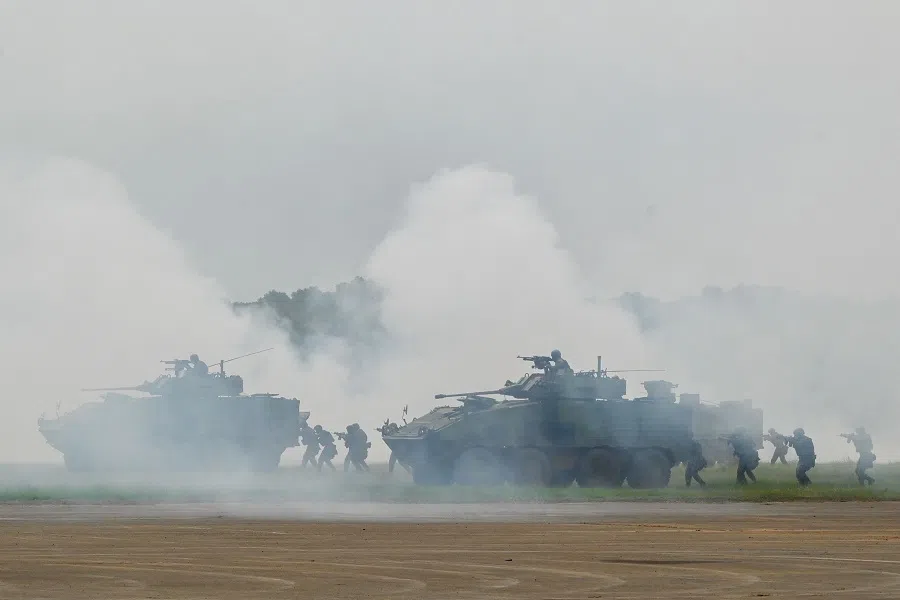
That is, mainland China has gone from requesting that the US make good on its promise to not support Taiwan independence in concrete terms in the past, to now going a step further by asking the US to oppose Taiwan independence and to take relevant action.
According to Politburo member and Foreign Minister Wang Yi, Xi Jinping asked that the US oppose Taiwan independence, and for the first time, stated clearly that the US should stop arming Taiwan, stop interfering in China's internal affairs and support China's peaceful reunification.
This is the go-getting stance adopted by mainland China. Going by mainland China's logic, the US expressing its opposition towards Taiwan independence would stop Taiwan independence forces from advancing such a cause - is this not a "guardrail" to prevent China-US conflict from erupting in the Taiwan Strait?
Of course, according to information released by the US, Biden did not agree to Xi's requests, only emphasising that the US's "one China" policy remains unchanged, meaning the US will not change its longstanding practice to "provide Taiwan with arms of a defensive character" based on its Taiwan Relations Act.
Looking at the information that came out from both sides following the Xi-Biden meeting, the Taiwan issue remains the biggest point of contention between China and the US, and is a potential point of conflict with the most risk. Though Xi denies a 2027 or 2035 timeline for plans to annex Taiwan by military force, he has also expressly stated the importance of solving the Taiwan issue and reunifying both sides of the strait, as well as the need to resort to military force under certain circumstances.
What mainland China might do
For mainland China, military reunification is the least desirable option. But as Beijing has repeatedly signalled its complete distrust of Lai, it would not hesitate to apply military and economic pressure on Taiwan, short of a military reunification, if it were to deal with a Lai administration in the future.
Nonetheless, Beijing's over-reliance on using the stick against Taiwan and its dearth of tacit appeal and persuasion is ultimately not a long-term solution. It is also important to note that reversing the downward trend in US-China relations does not guarantee smooth cross-strait relations - but if both sides of the strait engage in violent conflict, it could drag down China-US relations.
...after days of drama, KMT and TPP supporters are at loggerheads...
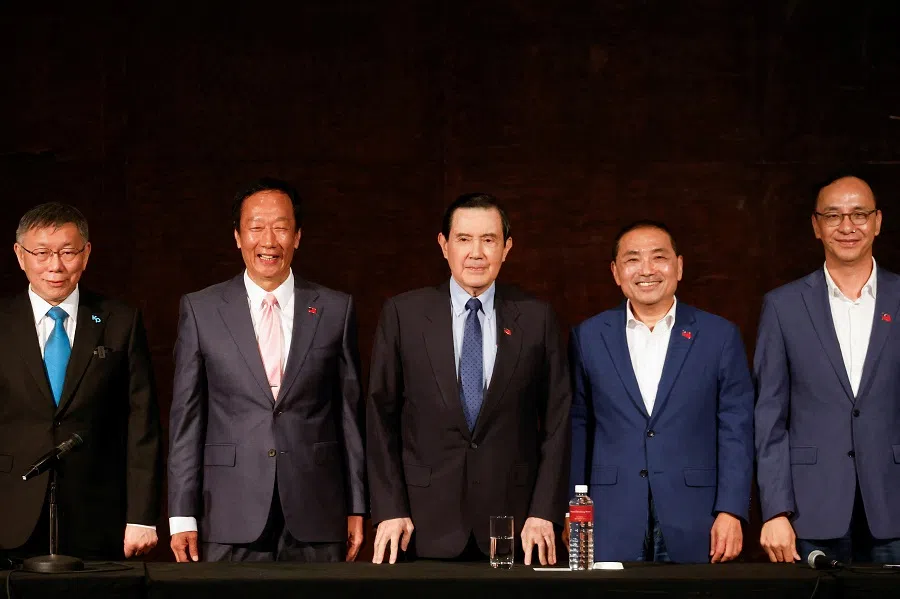
After eight years of DPP administration, some Taiwanese have hopes that the opposition can work together to realise party rotation to reflect the norm of a mature democratic society; others approach the issue with concerns for the stability of the Taiwan Strait, hoping the Blue-White alliance can form the next government. After all, if the opposition is divided, both the KMT and the TPP will almost certainly lose the election. For this reason, many pundits have refrained from declaring that the Blue-White alliance has fallen apart even after Thursday's fiasco.
However, after days of drama, KMT and TPP supporters are at loggerheads; even if by some miracle the Blue-White alliance finally comes true and they contest the election as a joint ticket, the question remains whether supporters of both sides would be able to cast their votes for such a pairing.
Regardless, the right of choice belongs to the people of Taiwan; external observers can only assess that for 2024 and beyond, tense cross-strait relations would likely heighten and geopolitical risks could be on the rise, and one should keep a clear head amid everything.
This article was first published in Lianhe Zaobao as "2024台海形势可能更凶险".
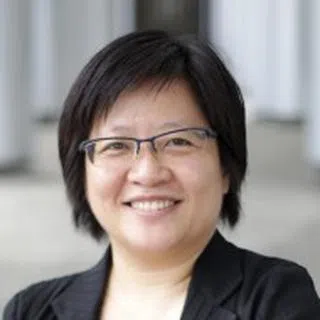

![[Big read] When the Arctic opens, what happens to Singapore?](https://cassette.sphdigital.com.sg/image/thinkchina/da65edebca34645c711c55e83e9877109b3c53847ebb1305573974651df1d13a)


![[Video] George Yeo: America’s deep pain — and why China won’t colonise](https://cassette.sphdigital.com.sg/image/thinkchina/15083e45d96c12390bdea6af2daf19fd9fcd875aa44a0f92796f34e3dad561cc)